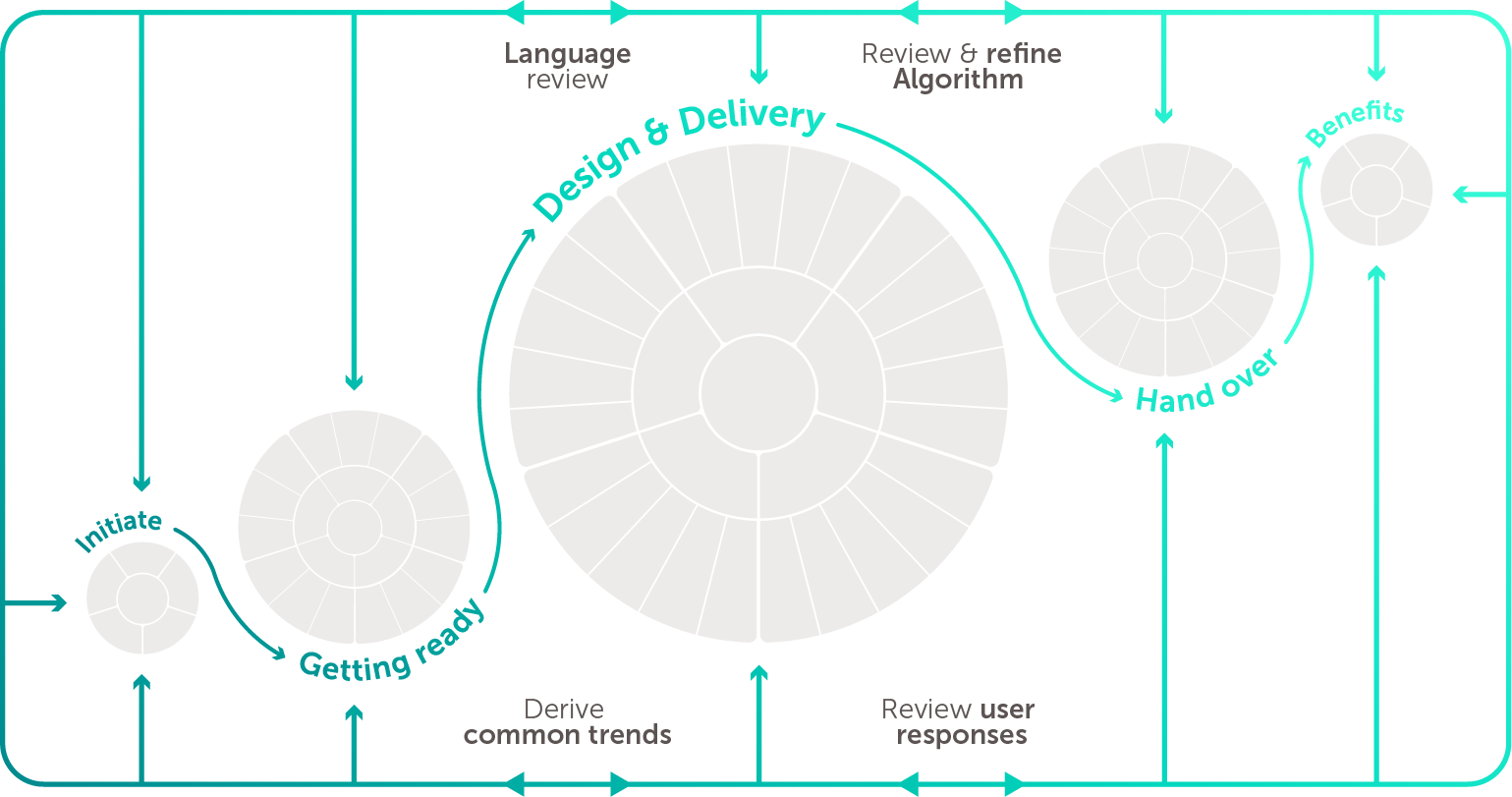Validation
The Constructive Collaboration (CC) methodology has been in continuous development since 2015, supported through industry wide events, trials with early adopters and the input of many project and programme teams.
Building on over 60 years of project data, CC now has a live empirical learning cycle. Through constant feedback, the CC offer is continually validated by the industry it supports.
Culture change will not happen without new thinking, new frameworks and scalable methodologies… Constructive Collaboration - is exciting and innovative. There is no doubt at all in my mind that this new approach has an important role to play in driving culture change, so the challenge now is to spread the word and accelerate its adoption."Dame Judith Hackitt DBE FREng
Back story
With a vision to ‘demystify’ collaborative practise, CC founder Andrew Wright convened leading practitioners, researchers and institutions to see if replicable solutions for collaboration in complex environments could be devised.
Key events at the Institution of Civil Engineers and the Royal Academy of Engineering validated the R&D stages which then informed the foundations of the process subsequently developed and ratified in practice.
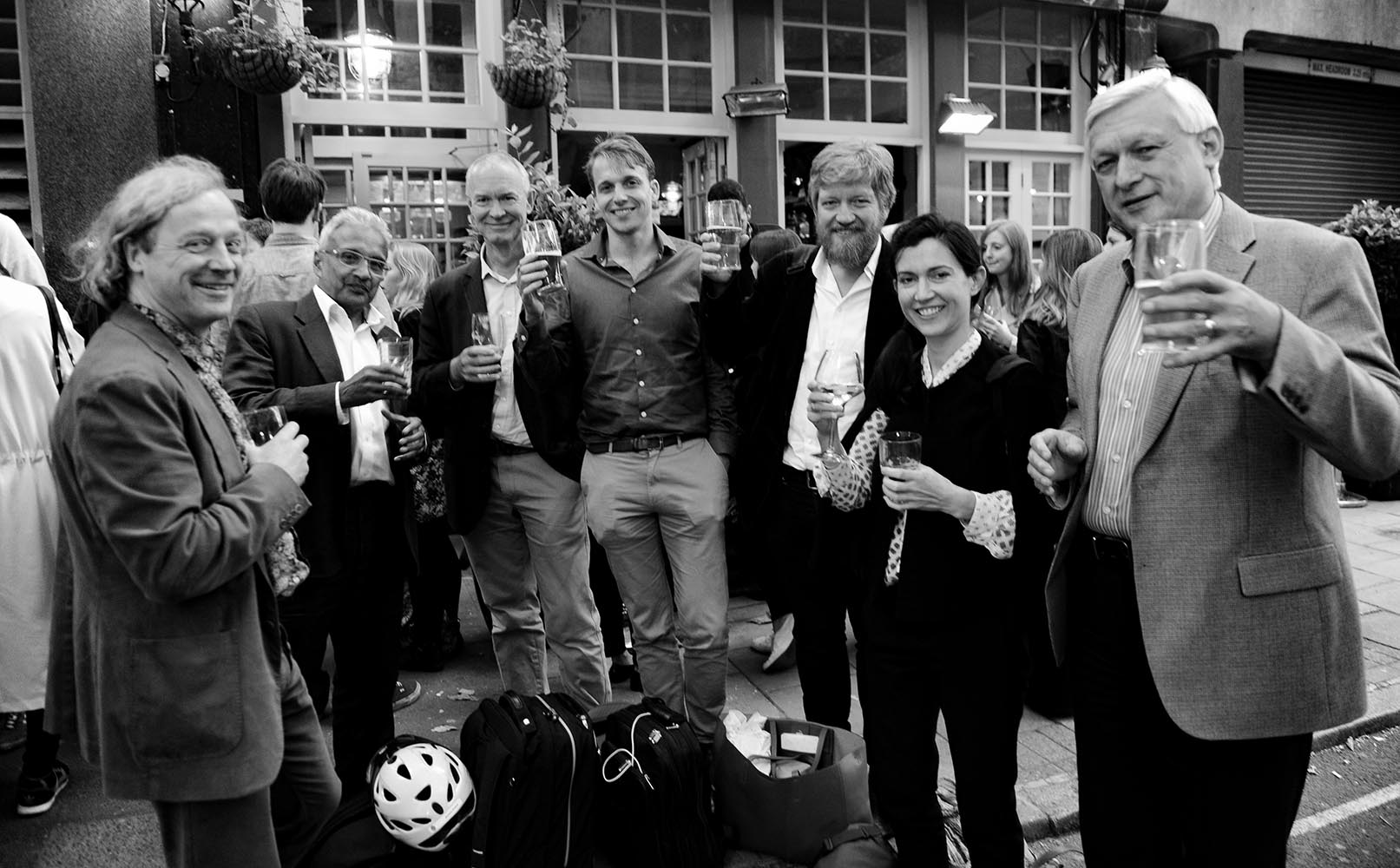
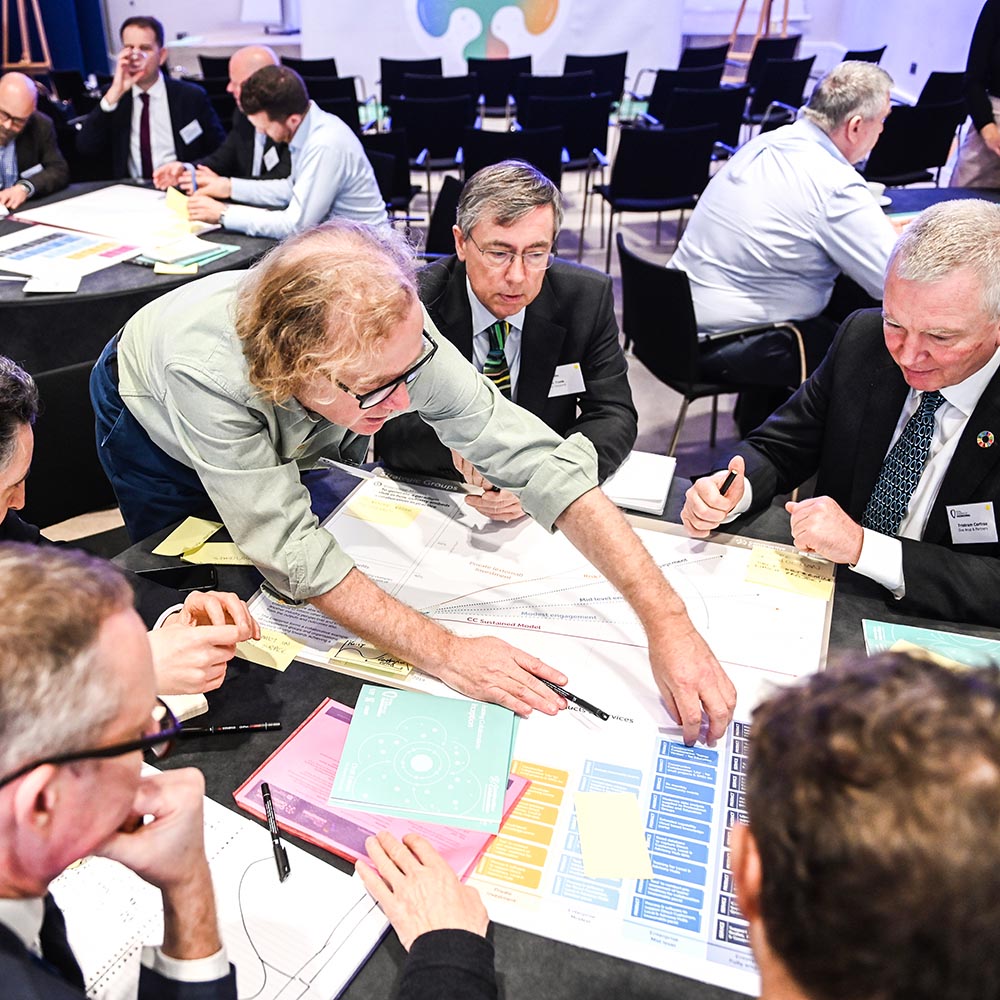
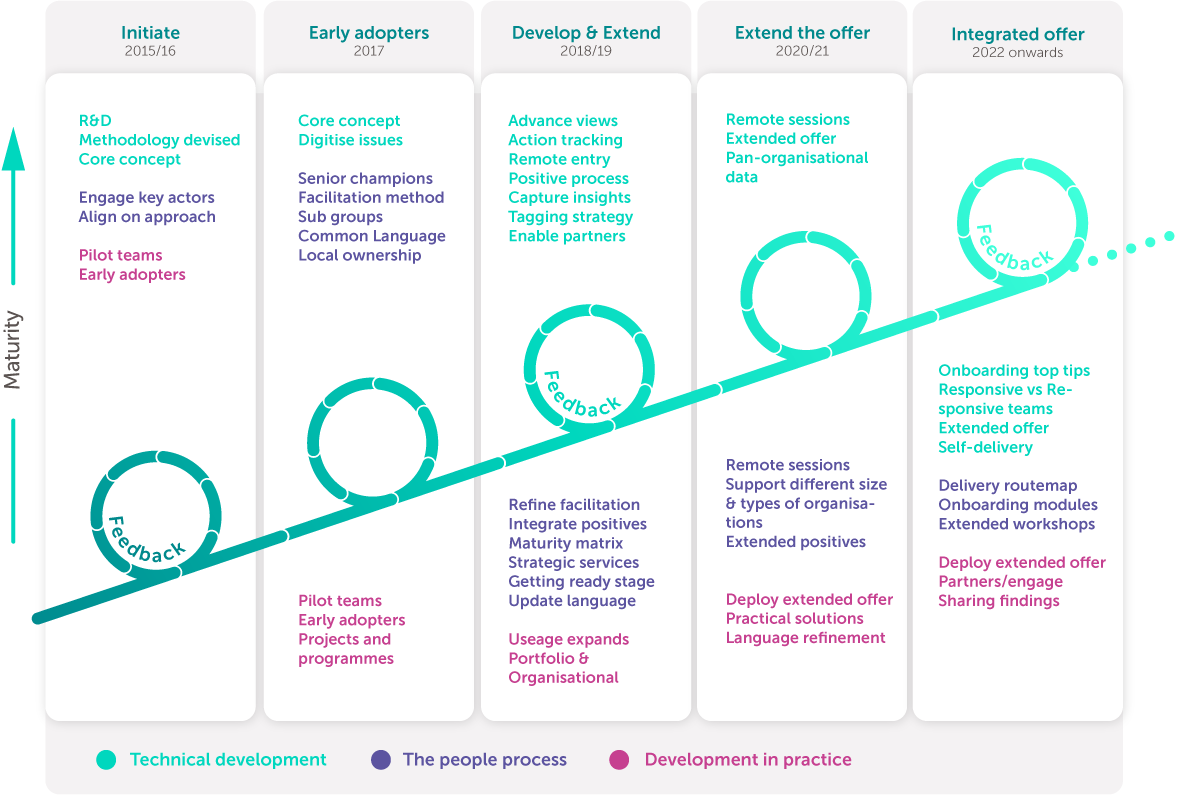

Methodology
The CC methodology has progressively developed and continues to develop as we learn with delivery teams.
The initial method and software prototype was developed and trialled in practice.
Empirical feedback from multiple projects supported the research required to balance digital systems, human behaviours, and practical project requirements.
The CC methodology and process is validated and unique to Constructive Collaboration.
Testimonials
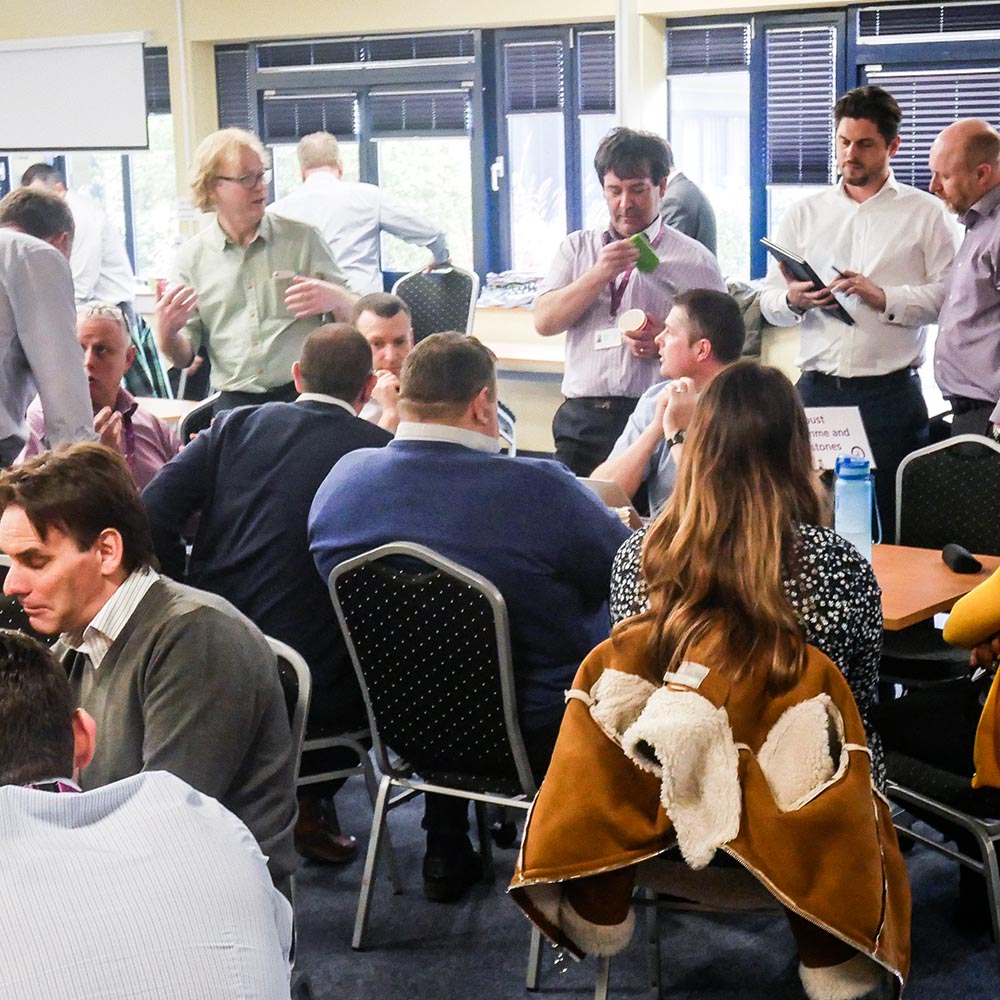
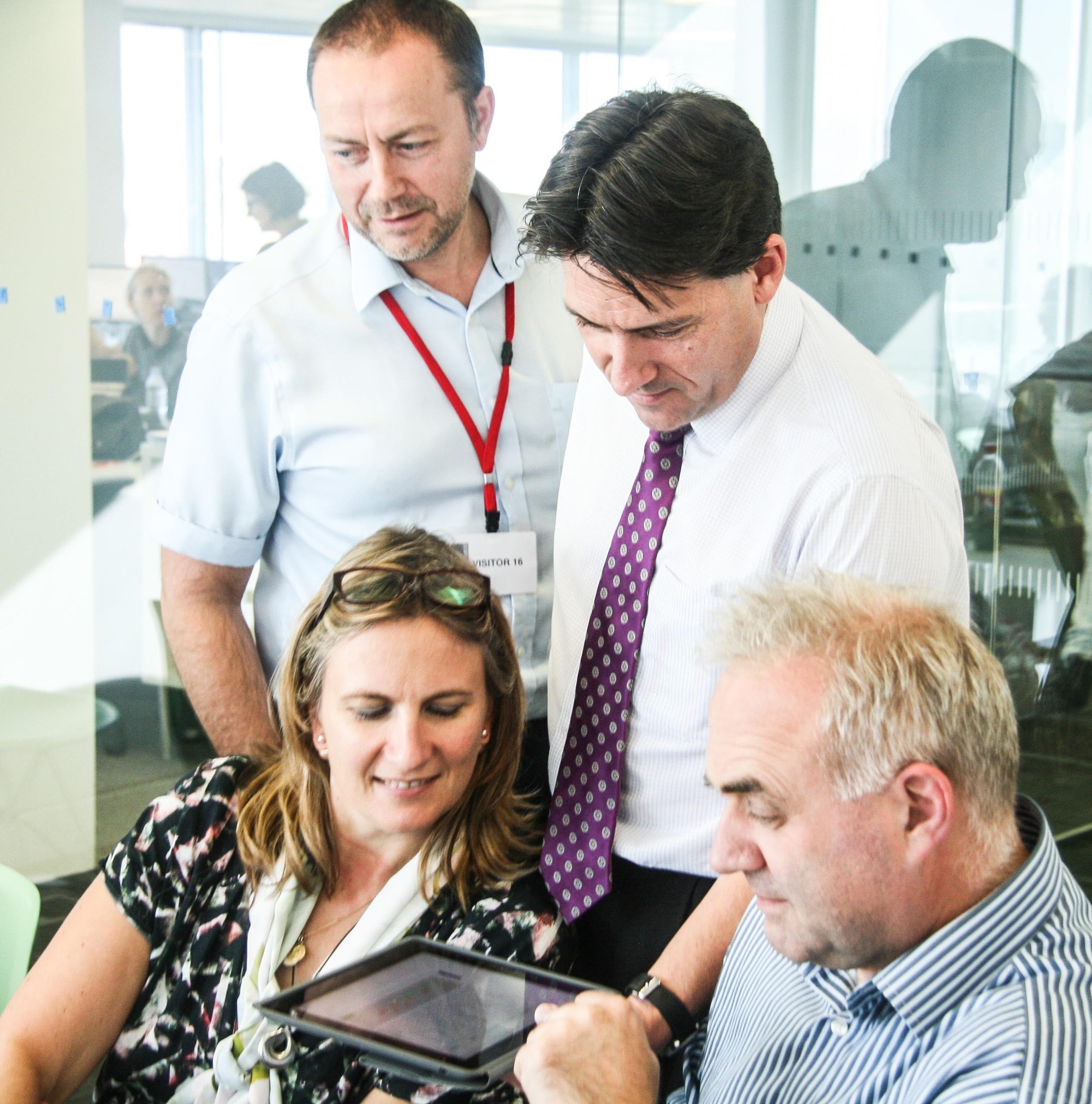
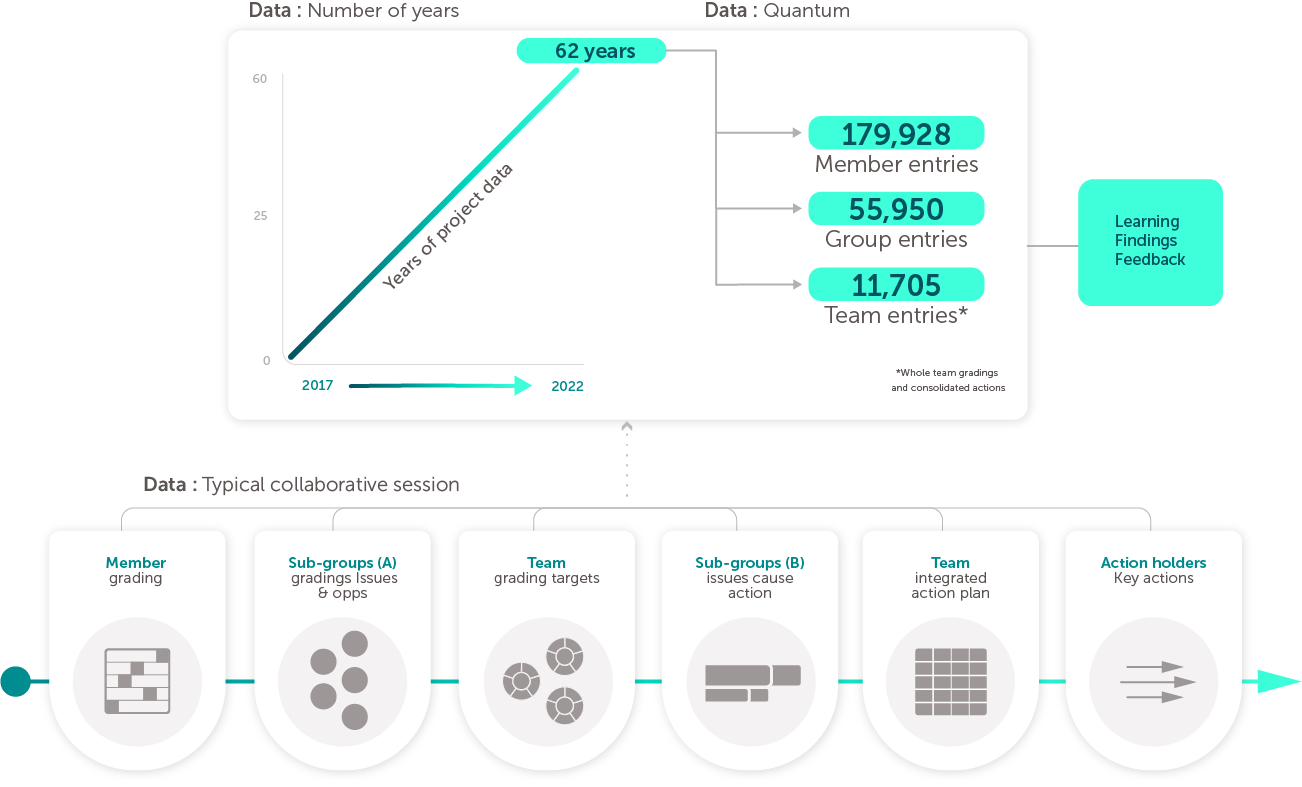

Data
Building on data from 62 live project years* up to 2022, CC’s comprehensive data set provides the basis of evidence that supports collaborative practice.
The CC process enables comparative data analysis that supports project decisions and informs industry-wide recommendations.
*One project year = 1 major project supported by CC for one year
Each session provides over 1500 data points, and the framework now incorporates almost 180,000 entries.
Feedback loop
CC’s hypothesis for enabling collaboration has been proven in practice.
Moreover, the learning collected to date – 180,000 inputs from over 230 sessions with 67 teams (as of December 2022) provides knowledge that constantly informs live iterative improvement cycles.

